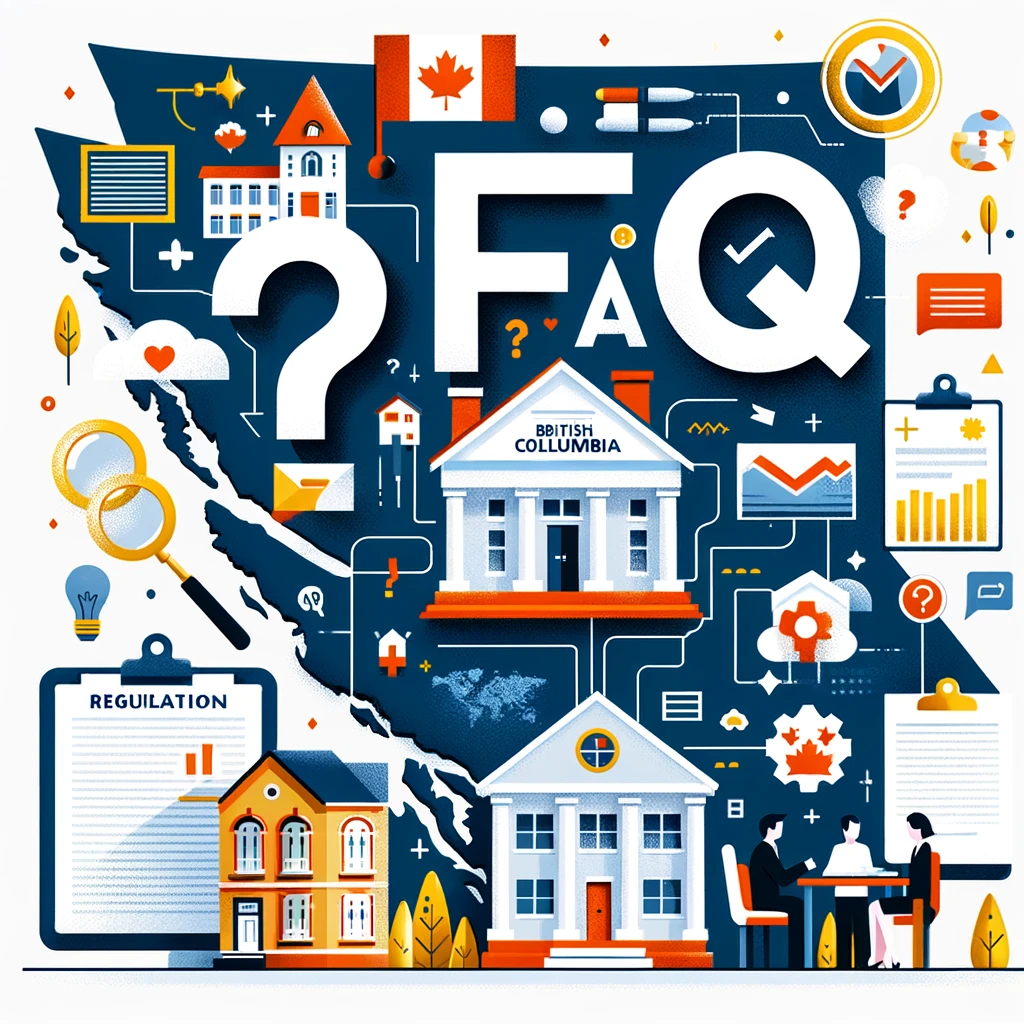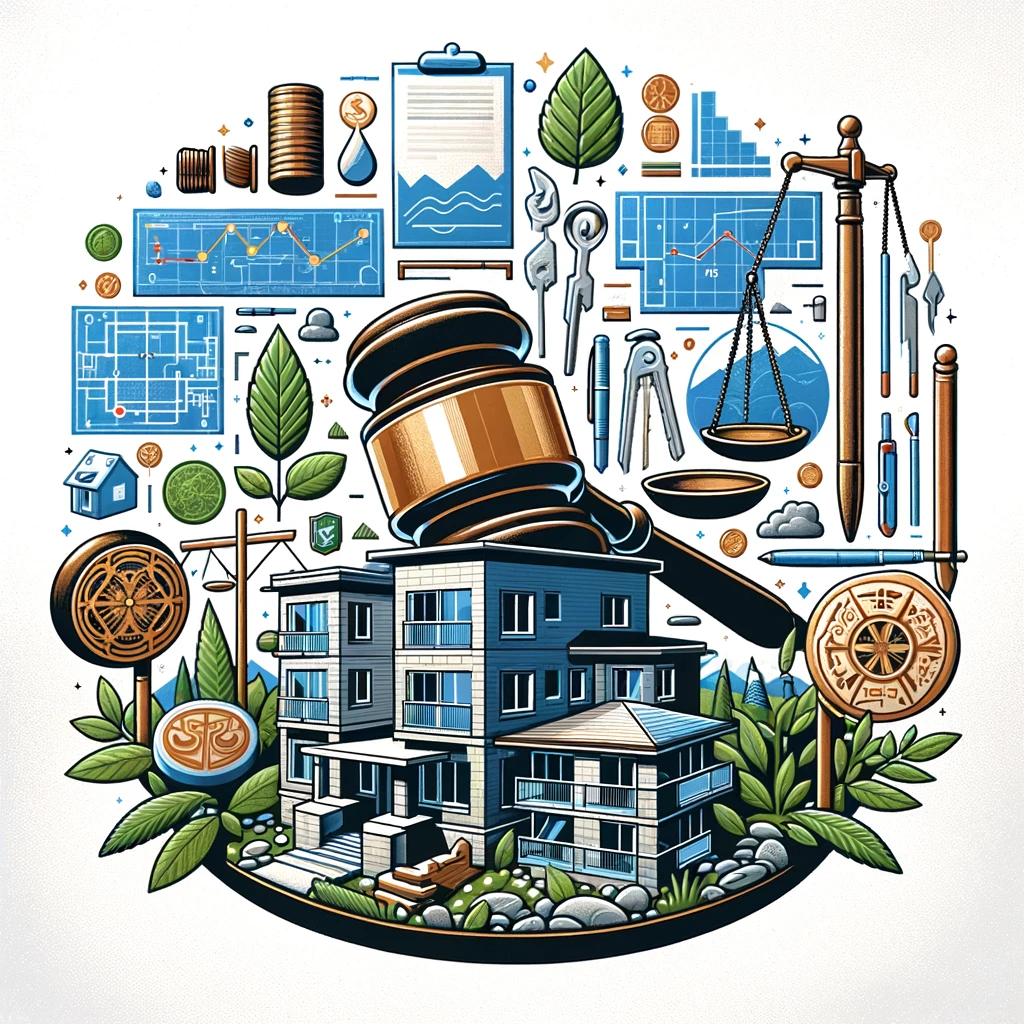Table of contents
Property laws in British Columbia (BC), Canada, govern the ownership and rights over real estate (land and buildings) and personal property (all other property). These laws outline how property is bought, sold, used, and transferred, and they cover a wide range of areas including land use, leasing, and mortgages. Below, I’ve outlined the key areas of property law in British Columbia under relevant headings for clarity.
Real Estate Ownership and Transfer
Land Title System
BC operates a land title system that is public and based on the Torrens system. This means that the government maintains a register of landowners, and the title to land is definitive proof of ownership. Transfers of land ownership must be registered with the Land Title and Survey Authority (LTSA) to be legally effective.
Property Purchase and Sale
Transactions for the purchase and sale of property are governed by the Property Law Act and the Real Estate Services Act. These laws set out the requirements for contracts of sale, including the need for written agreements, and regulate the conduct of real estate professionals.
Land Use and Zoning
Local Government and Land Use Planning
Municipal and regional governments in BC have the authority to control land use through zoning bylaws, official community plans, and development permits. These regulations determine how land can be used, the types of buildings that can be constructed, and the density of development.
Environmental Regulations
Environmental protection laws also impact land use. For instance, the Environmental Management Act and regulations under it can affect property development and use, particularly in sensitive areas.
Residential Tenancies
This act governs the relationship between landlords and tenants in BC, outlining their rights and responsibilities. It covers aspects such as security deposits, rent increases, eviction procedures, and dispute resolution through the Residential Tenancy Branch.
Strata Property
In BC, condominiums or strata developments are governed by the Strata Property Act. This act sets out the framework for the creation, governance, and operation of strata corporations, including the management of common property, strata fees, bylaws, and resolutions.
Mortgages and Financing
The Property Law Act includes provisions related to mortgages, detailing the rights and obligations of borrowers and lenders. This encompasses the process for mortgage registration, foreclosure, and rights of redemption.
Property Taxation
Municipal and Provincial Taxes
Property owners in BC are subject to property taxes levied by local and provincial governments. These taxes are based on the assessed value of the property and fund local services and infrastructure.
Indigenous Land Rights
In BC, Indigenous land rights are a significant aspect of property law, involving treaties, land claims, and self-governing agreements. These rights can affect land ownership, use, and development on traditional and treaty lands.
Conclusion
Property laws in British Columbia are comprehensive, covering the acquisition, use, and disposition of property. They are designed to balance the interests of property owners, the community, and the environment. For specific legal advice or detailed explanations, consulting with a legal professional who specializes in property law in BC is recommended.
Below are FAQs (Frequently Asked Questions) designed to provide quick and accessible answers to common queries regarding property laws in British Columbia (BC).
FAQ

A1: To transfer property ownership in BC, you must complete a transfer form and submit it to the Land Title and Survey Authority (LTSA) along with the required fees. It’s often advisable to work with a lawyer or notary public to ensure the transfer complies with all legal requirements.
A2: Landlords in BC are responsible for maintaining rental properties in a safe and habitable condition, providing tenants with a written tenancy agreement, respecting tenants’ rights to quiet enjoyment, and following specific procedures for rent increases and evictions as outlined in the Residential Tenancy Act.
A3: Whether you can build a secondary suite depends on the local zoning bylaws and land use regulations in your area. You may need to apply for a building permit and meet specific building codes and standards. Check with your local municipality for detailed requirements.
Financial Questions

A4: Property tax in BC is calculated based on the assessed value of your property, as determined by BC Assessment, and the tax rate set by your local municipality. The formula is: Assessed Value x Tax Rate = Property Tax Owed.
A5: If you’re unable to pay your mortgage, it’s important to communicate with your lender as soon as possible. Depending on your situation, you may be able to renegotiate your payment terms. If payments continue to be missed, the lender may initiate foreclosure proceedings to recover the owed amount.
Legal and Regulatory Questions

A6: The Strata Property Act governs condominiums and strata developments in BC. It outlines the legal framework for the creation, governance, and operation of strata corporations, including how common property is managed and the responsibilities of strata lot owners.
A7: Yes, environmental regulations such as the Environmental Management Act can impact property use, particularly in environmentally sensitive areas. These regulations may restrict development activities or require specific environmental assessments and mitigations.
Indigenous Land Rights

A8: Indigenous land rights, including treaty rights and land claims, can affect property ownership, use, and development on traditional and treaty lands. It’s essential to be aware of and respect these rights when considering property development in areas with Indigenous interests.
Miscellaneous

A9: You can find out your property’s zoning by contacting your local municipality or checking their website. Many municipalities provide online maps or databases where you can search for your property and see its zoning designation and applicable regulations.
A10: If you have a dispute with your landlord or tenant in BC, you should first try to resolve it through direct communication. If that fails, you can seek resolution through the Residential Tenancy Branch, which offers dispute resolution services for landlords and tenants.
For more detailed information or specific inquiries, it’s recommended to consult a legal professional or the appropriate governmental authority.
Pax Law can help you!
Our lawyers and consultants are willing, ready, and able to assist you. Please visit our appointment booking page to make an appointment with one of our lawyers or consultants; alternatively, you can call our offices at +1-604-767-9529.



1 Comment
michael goodwin · 28/12/2024 at 11:21 am
Nice to see such an attractive website.